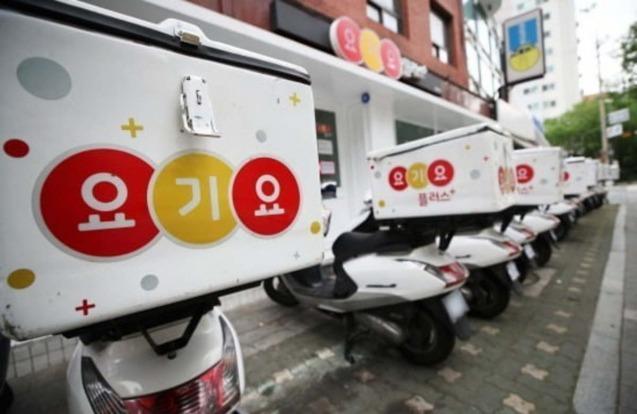South Koreans are bent towards entrepreneurship and innovation and a new survey cements the fact. A Job Korea & Albamon survey finds out that more Korean youth inclined to start business. Korea Development Institute (KDI) raises economic outlook for the country and Korean companies increase their digital assets. Also, race to grab delivery app startup Yogiyo intenses. In International collaborations, South Korea signs business agreement with Israel. Check some of the news that happened in South Korea.
8 out of 10 office workers and college students,’I want to start a business’
Source: Platum
Eight out of 10 college students and office workers were found to be willing to challenge startups. As for the field that they want to start a business, there were a little more opinions that they would like to start a small business such as a cafe and a PC cafe than to start an idea-based startup.
According to a survey conducted by Job Korea and Albamon on 955 college students and office workers, 83.8% of college students and 82.1% of office workers answered’I want to challenge’.
The reason why they want to start a business (multiple responses) differed according to gender and age. Most of the opinions were that men wanted to start a business because they wanted to make a lot of money (56.0%), and women wanted to start a business to find personal satisfaction by doing what they usually wanted to do (51.8%). By age, 20s seek personal satisfaction (51.3%), 30s seek to make a lot of money (52.6%), and 40s and older seek to continue working even after retirement (55.0%).
Korean companies’ exposure to digital assets grow
Source: Korea Herald

A growing number of South Korean companies are exposing themselves to cryptocurrencies, financial reports filed last year showed, as experts expect the trend to continue and gain traction. At least 23 companies reported they were holding various types of cryptocurrencies as intangible assets as of the end of last year, according to financial reports filed with the Financial Supervisory Service, the country’s financial regulator. Those with the most cryptocurrency was Dunamu, the operator of the country’s largest digital coin exchange Upbit, with a valuation of 46.2 billion won ($41.2 million) at the time the report was submitted. It also included 29.9 billion won of bitcoin and 159 million won in Ethereum.
Last year’s figures drew a notable change from the 11 billion-won worth of virtual assets the company reported just a year ago. Dunamu’s financial reports showed that the company added 742 bitcoins in 2020. Mobile giant Kakao said it possessed unlisted and undisclosed types of digital coins worth 23.19 billion won, reporting its virtual assets for the first time in the company’s financial statement.
S. Korea, Israel to expand ties in R&D projects, brace for post-pandemic era
Source: Yonhap

South Korea and Israel vowed on May 12 to expand ties in research and development (R&D) projects to brace for the post-pandemic era and penetrate deeper into emerging segments, including robotics and biotechnology.
The announcement came after the two countries decided to fully revise their 20-year-old agreement on technology exchanges to reflect the latest industrial trends, according to the Ministry of Trade, Industry and Energy. Under the revision, each country will disburse US$4 million annually for joint R&D projects, which doubles from the previous annual budget of $2 million.
KDI raises its economic outlook for 2021 from 3.1 percent to 3.8 percent citing eonmomic recovery. However, sluggish vaccine program and rising inflation are considered a risk. #KDIforecast #Koreaeconmicrebound #movingawayfromCovid19impact https://t.co/UCSaQOiABv pic.twitter.com/FzICqO8TZj
— Korea JoongAng Daily (@JoongAngDaily) May 13, 2021
Delivery app Yogiyo bidders narrowed to Shinsegae, PEFs
Source: The Korea Economic Daily

Germany’s Delivery Hero SE has narrowed down the list of bidders for South Korea’s second-largest food delivery platform Yogiyo to Shinsegae Inc.’s e-commerce spin-off SSG.COM and private equity firms, including MBK Partners and Affinity Equity Partners, according to investment banking sources.
Other PEFs on the shortlist are Permia and Bain Capital, while South Korea’s largest travel platform Yanolja was dropped from the list, the sources said on May 10. The candidates will begin due diligence on Yogiyo this week, for which the estimated price tag varies widely from as low as 500 billion won ($446 million) to as high as 2 trillion won ($1.8 billion).
Delivery Hero has put 100% of Yogiyo on the market in compliance with the conditions put forward by the Korea Fair Trade Commission last year to close its $4.3 billion purchase of Yogiyo’s bigger rival, Baedal Minjok, or Baemin. The planned sale, handled by Morgan Stanley, had drawn about 10 non-binding bidders. The German food delivery service provider must complete the sale by no later than February 2022.






